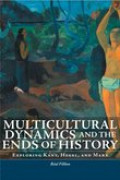
Multicultural dynamics and the ends of history
Multicultural Dynamics and the Ends of History provides a strikingly original reading of key texts in the philosophy of history by Kant, Hegel, and Marx, as well as strong arguments for why these t…
- Edisi
- -
- ISBN/ISSN
- 9780776606705
- Deskripsi Fisik
- -
- Judul Seri
- -
- No. Panggil
- 901 FIL m
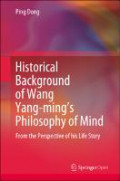
Historical background of Wang Yang-ming’s philosophy of mind:from the persp…
This open access book offers comprehensive information on Wang Yang-ming’s life, helping readers identify and grasp the foundations on which his philosophy was established. Though a great man, Wa…
- Edisi
- -
- ISBN/ISSN
- 9789811530364
- Deskripsi Fisik
- 199 p.; 22 cm.
- Judul Seri
- -
- No. Panggil
- 909 DON h
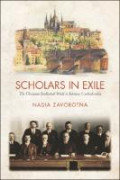
Scholars in exile:the Ukranian intellectual world in interwar Czechoslovakia
Throughout the 1920s and 30s Prague was the intellectual center of Ukrainian émigrés in Europe, not least because of significant financial support from the Czechoslovak government and its first p…
- Edisi
- -
- ISBN/ISSN
- 9781487530204
- Deskripsi Fisik
- xvi, 260p.: ill.
- Judul Seri
- -
- No. Panggil
- 943.700491791009042 ZAV s
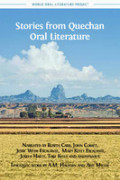
Stories from Quechan oral literature
"The Quechan are a Yuman people who have traditionally lived along the lower part of the Colorado River in California and Arizona. They are well known as warriors, artists, and traders, and they al…
- Edisi
- -
- ISBN/ISSN
- 9781909254879
- Deskripsi Fisik
- XII, 533 p.
- Judul Seri
- -
- No. Panggil
- 970.00497 HAL s
invasion of the Dutch East Indies
compiled by the War History Office of the National Defense College of Japan ; edited and translated by Willem Remmelink.Between 1966 and 1980, the War History Office of the National Defense College…
- Edisi
- -
- ISBN/ISSN
- 9789400602298
- Deskripsi Fisik
- xxxii, 640 pages : illustrations, maps ; 27 cm
- Judul Seri
- -
- No. Panggil
- 959.80224 REM i
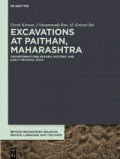
Excavations at Paithan, Maharashtra :transformations in early historic and ea…
This book reports on excavations at Paithan in India revealed the development of two early Hindu temples from the 4th century to the 9th: the key formative phase of Hinduism. The temples started as…
- Edisi
- -
- ISBN/ISSN
- 9783110653540
- Deskripsi Fisik
- XX, 386 p.
- Judul Seri
- -
- No. Panggil
- 956.94 KER e
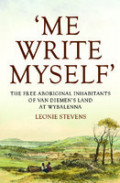
'Me write myself':the free aboriginal inhabitants of Van Diemen's Land at Wyb…
Exiles, lost souls, remnants of a dying race ... The fate of the First Nations peoples of Van Diemens Land is one of the most infamous chapters in Australian history. The men, women and children ex…
- Edisi
- -
- ISBN/ISSN
- 9781925523867
- Deskripsi Fisik
- xliv, 356 pages : ill, maps ; 20 cm
- Judul Seri
- -
- No. Panggil
- 994.60049915 STE m
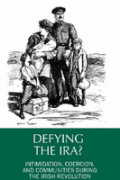
Defying the IRA?:intimidation, coercion, and communities during the Irish Rev…
This book examines the grass-roots relationship between the Irish Republican Army (IRA) and the civilian population during the Irish Revolution. It is primarily concerned with the attempts of the m…
- Edisi
- -
- ISBN/ISSN
- 9781781383544
- Deskripsi Fisik
- xi, 230p.: 24 cm.
- Judul Seri
- -
- No. Panggil
- 941.50821 HUG d
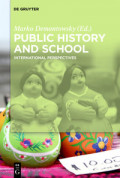
Public history and school :international perspectives
How do schools and public history influence each other? Cases studies focusing on school and public history around the world shed light on the intricate relationships between schools, students, tea…
- Edisi
- -
- ISBN/ISSN
- 9783110466133
- Deskripsi Fisik
- X, 220 p.
- Judul Seri
- -
- No. Panggil
- 943 PUB p
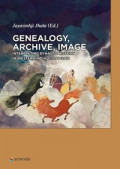
Genealogy, archive, image :interpreting dynastic history in western India, c.…
The ethnographic approach to Indian history and genealogy; the making of dynastic history in the kingdom of Jhalavad; the history of Gujarat. ‘Genealogy, Archive, Image’ addresses the ways i…
- Edisi
- -
- ISBN/ISSN
- 9783110539455
- Deskripsi Fisik
- XVI, 278 p.
- Judul Seri
- -
- No. Panggil
- 954.75 JHA, g

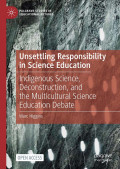
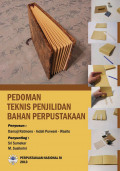
 Karya Umum
Karya Umum  Filsafat
Filsafat  Agama
Agama  Ilmu-ilmu Sosial
Ilmu-ilmu Sosial  Bahasa
Bahasa  Ilmu-ilmu Murni
Ilmu-ilmu Murni  Ilmu-ilmu Terapan
Ilmu-ilmu Terapan  Kesenian, Hiburan, dan Olahraga
Kesenian, Hiburan, dan Olahraga  Kesusastraan
Kesusastraan  Geografi dan Sejarah
Geografi dan Sejarah